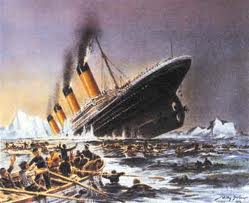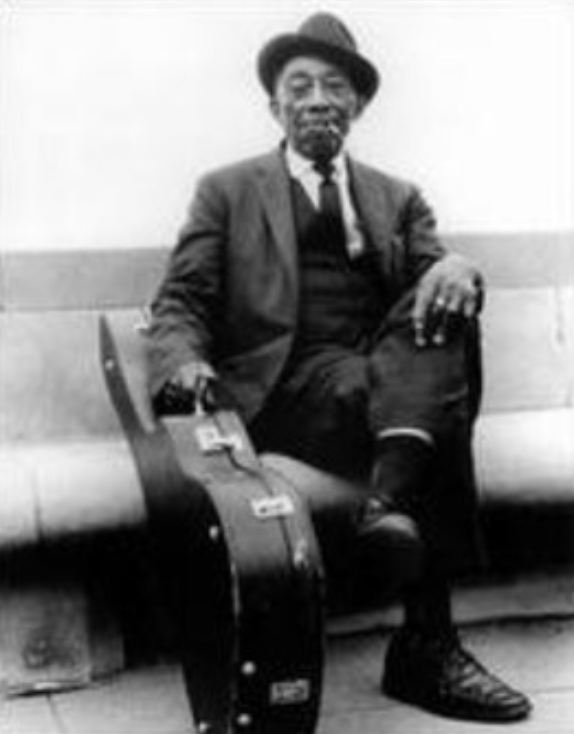
In all the hoopla surrounding the 100-year anniversary of the sinking of the Titanic, there’s been little said about the enormous impact of the disaster on African-Americans and the music they gifted the world: the blues.
The absence of race from the dialogue about the Titanic is strange, because over the years I’ve read and heard that its sinking had a huge impact on black people in America. It’s not hard to understand why: the aptly named White Star Line did not allow people of African descent on board, either as guests or employees. Legend even has it that the great boxer Jack Johnson, who was in his prime in 1912, was banned from buying a ticket by the captain himself – a tale immortalized in Leadbelly’s great song, The Titanic.
Thus, to many dispossessed people in the United States, the disaster quickly became a symbol of the contradictions and hubris of the wealthy and powerful. Yes, they had the ability to board and enjoy the industrial world’s greatest project up to then; but no, their white skin and privilege did absolutely nothing to protect them from disaster and death in the frigid waters of the Atlantic. For many, it was karma, pure and simple.

“When that great ship went down, there was a murmur of satisfaction that went through this country for years,” Greil Marcus, the music writer, once said. He was talking at a 1997 symposium in Washington, D.C., that honored and celebrated Harry Smith’s fantastic Anthology of American Folk Music, which the Smithsonian Institution re-released that year in CD (Marcus has written it about for years, most notably in his excellent book, Old Weird America). According to Marcus, black people were deeply moved by the fact that the Titanic was “white-only from top to bottom,” yet could not protect its passengers from its own folly.
Much of the music of the time reflected these sentiments. As musicologist Stephen Winnick wrote in the Huffington Post last week,
One of the most common themes of Titanic songs is the wrath of God. By advertising the ship as “virtually unsinkable” and adding a list of wealthy and prominent passengers, the White Star Line made many people feel the whole voyage reflected hubris, waste, and greed. In many minds, the iceberg was the hand of God, teaching a lesson to the rich and the mighty. “God Moves on the Water,” sang Lightnin’ Washington to the Library of Congress fieldworkers John and Alan Lomax in 1933, “the people got to run and pray.“
Winnick then goes on to play and comment on a series of great Titanic songs, much of them collected by the Lomaxes as they scoured the South for voices of the people in the 1930s and 1940s. Most of them are by black bluesmen. But Winnick missed what is perhaps the most poignant of the Titanic songs – Richard Rabbit Brown’s “Sinking of the Titanic.”
For this song, I’m indebted to Marcus, who played it for that Smithsonian symposium in 1997 as an example of the best music of the era that can be heard on Harry Smith’s Anthology. Rabbit Brown was a street singer in New Orleans, and, according to Marcus, worked for years as a boatman on Lake Pontchetrain. He is known for only five songs, one of which, James Alley Blues, is probably the most covered song of the dozens of blues, spirituals and tall-tales on the six-CD Harry Smith collection (I perform it often, and introduce it as “the mother of all sardonic love songs.”)
What’s amazing to me about Brown’s take on the Titanic is his humanity. Brown may have been black, he may have been a down-trodden worker in the racist South, but he knew above all that the people on the ship. as well as those who built and operated it, were human beings who, like him, could feel sorrow or joy. He may have felt a “murmer of satisfaction” at the thought of all those privileged people going down with the ship, but he also identified with their struggles, and hopes. And he incorporated important detail into the song, much like Bob Dylan would do years later with The Lonesome Death of Hattie Carroll. Like Dylan’s best, it’s a heart-breaking songs of pathos.
It was early Monday morning, just about the break of day
Captain said call for help from the Carpathia and it was many miles away
Everyone was calm and silent, asked each other what the trouble may be
Not thinking that death was lurking there upon that northern seaThe Carpathia received the wireless SOS re distress
Come at once, we are sinking, make no delay and do your best
Get the lifeboats all in readiness ‘cos we’re going down very fast
We have saved the women and the children and tried to hold out to the last
Give it a listen. And hear the voices of our collective past, sinking into the sea.
